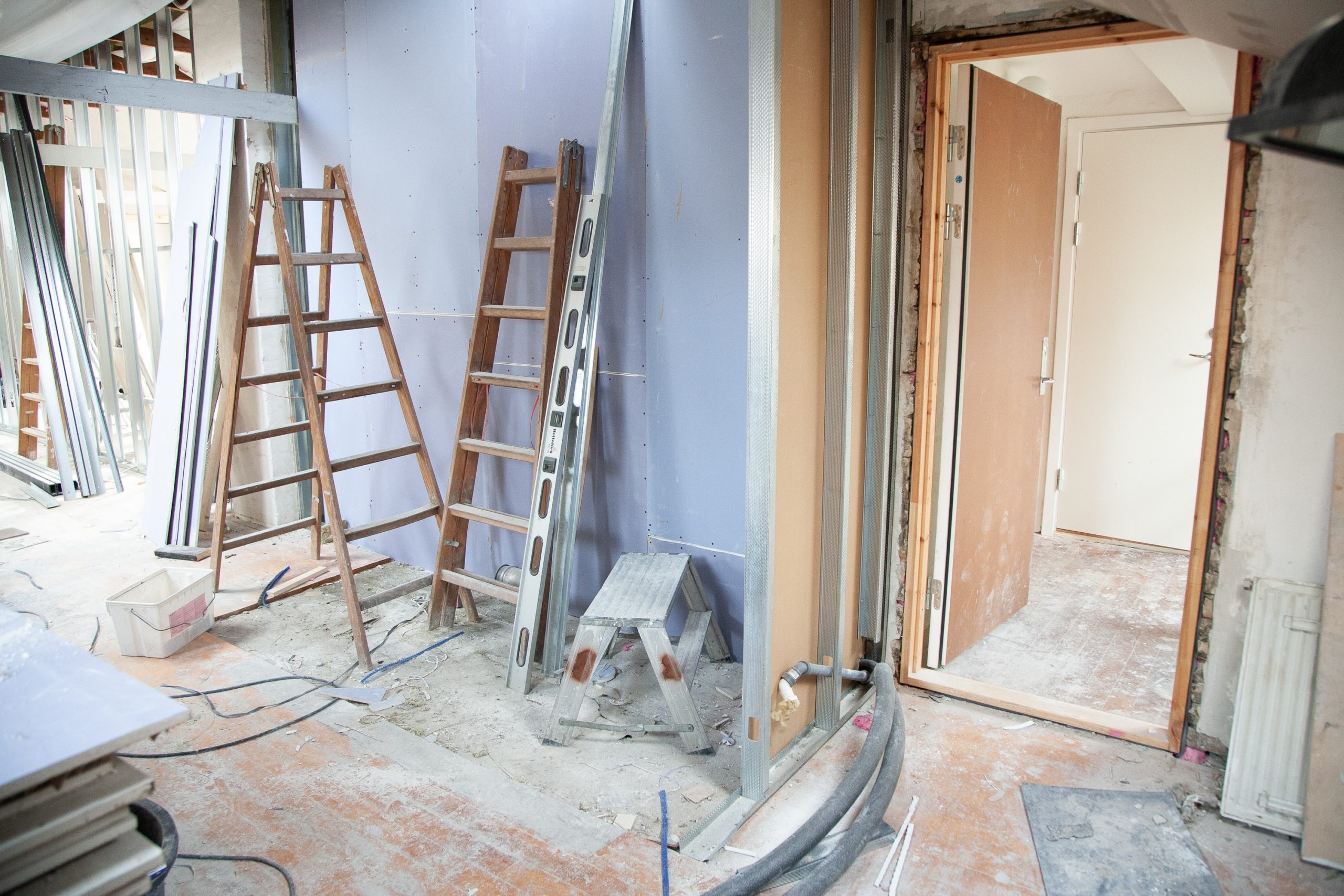
If you’re thinking about renovating your home, you may be wondering if a home renovation loan is the best option for you. In this blog post, we’ll discuss everything you need to know about home renovation loans!
We’ll cover what they are, how they work, and who they are best for. So whether you’re just starting to explore your renovation options or you’re ready to apply for a loan, this post has everything you need to make an informed decision.
Table of Contents
What are Home Renovation Loans?
A home renovation loan is a type of mortgage that can be used to finance home improvements. These loans are available from a variety of lenders, and they typically offer a lower interest rate than other types of home improvement financing options.
How do Home Renovation Loans Work?
Home renovation loans work just like regular mortgages: you borrow a certain amount of money to purchase or remodel a home. The only difference is that home renovation loans are specifically designed for home improvements.
There are two types of home renovation loans: the first is a standard home equity loan, which is a fixed-rate loan that allows you to borrow up to 80% of your home’s value. The second type is a home equity line of credit (HELOC), which is a variable-rate loan that lets you borrow up to 85% of your home’s value.
Both types of home renovation loans let you use the money for any purpose, including remodeling, repairing, or upgrading your home. You can also use the funds to pay for other household expenses, such as college tuition or medical bills.
How to Qualify for a Home Renovation Loan
There are a few things you can do to increase your chances of qualifying for a home renovation loan.
Have a High Credit Score: This will demonstrate that you’re a low-risk borrower and are likely to pay back the loan on time. Make sure to check out other articles on this website to learn how to build and maintain a high credit score.
Steady Source of Income: Lenders want to be sure that you’ll be able to make your monthly payments, so they’ll look at your income and debt-to-income ratio.
Have Plenty of Equity: Most home renovation loans are offered as home equity loans or lines of credit, which means you’ll need to have enough equity in your home to qualify.
Benefits of a Home Renovation Loan
One of the biggest benefits of home renovation loans is that they can help you avoid paying for expensive home repairs out-of-pocket. In some cases, home repairs can cost thousands of dollars, and it may be difficult to save up enough money to cover the expense. A home equity loan or line of credit can provide you with the funds you need to make necessary repairs without breaking the bank.
Another benefit of home renovation loans is that they can help you increase the value of your home. If you are planning to sell your home in the near future, a home renovation loan can be a great way to give your home a competitive edge in the market.
A renovation mortgage can be a great way to finance a home remodel. If you’re not sure how much the remodel will cost, a renovation mortgage can help you spread out the payments over time.
Finally, home renovation loans can help you improve your home’s energy efficiency. This can save you money on your monthly energy bills, and it can also help increase the value of your home.
If you are considering a home renovation, be sure to explore all of your financing options. A home renovation loan may be a great way to get the project done without breaking the bank.
Disadvantages of a Renovation Mortgage
A renovation mortgage can be a great way to finance home renovations, but there are some potential disadvantages to be aware of.
One disadvantage is that the interest rate on a renovation mortgage may be higher than on a traditional mortgage. This can cause your monthly payments to be higher, so it’s important to understand if you can afford this loan before applying.
Another disadvantage is that you may have to pay for the renovations yourself and then apply for reimbursement from the lender. This can be a slow process, and you may not get all of the money back that you spent on the renovations.
Finally, it’s important to remember that a renovation mortgage is a secured loan. This means that if you can’t make your payments, the lender could take your home away from you.
Be sure to weigh the pros and cons of a renovation mortgage before deciding if this is the right option for you. If you decide a renovation mortgage is right for you, be sure to shop around for the best interest rate.
Examples of When Home Renovation Loans Can be Helpful
As a homeowner, you’ve been paying down your mortgage consistently and have built significant equity in the property. You noticed that rent prices are rising in your area. Your basement is unused and you plan on offering it for rent to create a source of passive income.
However, the basement has experienced some damage through your years of partying and they would need repairs. Some extra amenities such as a bathroom, laundry space, and kitchen would also be needed for a desirable place to live.
You just returned from an expensive vacation and your job is only offering part-time hours. You do the math which is quoted at $15,000 and realize that it would take you months if not years before you could afford to hire a contractor. With the additional time it would take for the renovations to complete, your goal begins to look more like a distant dream than a practical reality.
You begin to search for lenders and have found an affordable financer. You begin your project ASAP while paying off the interest rate with your job. The contractor finishes the job in only 12 weeks and soon after you begin earning an extra $1500 per month from renting out the extra space.
Within 10 months, the passive income from rent has paid off the principle of the loan while you continue to pay off just the interest payments. Your boss calls you asking you if you’d like more work. You’ve enjoyed having spare time and now that you are earning an extra $1500 per month, you decide it’s not worth the hours spent at the office. You continue working part-time in a semi-retired lifestyle.
As you can see, with a renovation mortgage, you would see a return on your investment within only 10 months. This is a scenario where it can be helpful to apply for a home renovation loan.
Examples of When Home Renovation Loans Can Be Harmful
You take a visit to a friend’s home for her baby shower and notice the beautiful marble kitchen. It has a luxurious feel and you can imagine yourself preparing meals there. You begin to feel envious and insecure because your own kitchen looks like it’s from a tacky comedy show.
As the group gathers around the kitchen table, your husband invites them over to play with your child when their baby is born in just a few months. Before you can have a say and shield your insecurities, they accept.
You do the math in your head based on how much your friends make per year and determine that the kitchen was likely installed with a home renovation loan and you are now inspired to do the same. You tell your husband about your desires and he explains that he’s been wanting to renovate it for years, but just never seems to have the extra cash lying around.
When the contractor arrives, he quotes you for $15,000 and it can be done within a few months. You are excited and ask him to start right away as you begin calling different lenders.
Your husband is a stay-at-home father looking after the young baby and you are the sole income earner in the household. As a family, you are all living paycheque to paycheque. However, you still somehow manage to find a lender to approve the loan but the interest payments are high. You decide to apply anyway.
This puts your finances into debt as you are not earning enough to fund the interest rate or the principle of the loan. When the contractor is finished, the kitchen looks amazing! And it was finished just in time before the house party. The couple brings their newborn baby and all the other guests show more attention towards the new arrival rather than your new kitchen.
Overall, you had a great time with your friends. However, as you sit down with your husband at the kitchen dining table, you both realize it was not worth it.
This is an example of when a home renovation loan can be harmful. Renovation mortgages are like any type of loan. If used responsibly, it can fund an asset. However, if you are careless, it can become a liability.
Who Shouldn’t Get A Home Renovation Loan?
Before applying for a home renovation loan, ask yourself these questions:
- Can I afford the monthly interest payments?
- Can I afford the principle of the loan?
- Do I have a steady job with a good income?
- Do I have a high enough credit score to qualify for the loan?
If you answered no to any of these questions, it might be a good idea to wait until you can afford it. Remember, home renovation loans are just like any other type of loan–they need to be paid back with interest. If you’re not in a good financial position to take on a home renovation loan, it’s best to wait.
Who are Home Renovation Loans Best For?
Home renovation loans are best for people that have a good credit score, a steady job with a high income, and can afford the monthly interest payments and principal of the loan. If this doesn’t describe your circumstance, renovation mortgages may not be for you.
However, if this does describe your current situation, a home renovation mortgage can be a great way to fund your home renovation project. Home renovation loans work best for people with an investment strategy such as the one mentioned earlier in the article.
How to Apply for a Home Renovation Loan
If you’re thinking about applying for a home renovation loan, be sure to consult with a mortgage lender first. They can help you determine if you qualify for a loan and which type of loan is best for you. Here are the general steps you can expect to take when applying for a renovation mortgage:
- Consult with a mortgage lender
- Submit an application for pre-approval
- Get final approval from the mortgage lender
- Work with a contractor to get an estimate for the renovation
- Submit the estimate to the mortgage lender
- Receive final approval from the mortgage lender
- Begin renovation work with the contractor
- Make monthly payments to the mortgage lender until the renovation is complete
Each lender may require specific documentation. It’s important to also have a written quote from your contractor to prove the cost of the project. Proof of income statement and credit report will also likely be required.
Home Renovation Loans: Everything You Need to Know (Summary)
So, you’ve decided to renovate your home. Congratulations! A home renovation can not only make your home look amazing, but it can also increase its value. But before you start picking out paint colors and home appliances, there are a few things you need to keep in mind.
There are pros and cons to the decision and it’s one you shouldn’t take too lightly. As a homeowner, you’re responsible for the monthly payments on the home renovation loan until the project is complete. If you’re not sure if a home renovation loan is right for you, consult with a mortgage lender. They can help you determine if you qualify for a loan and which type of loan is best for you.
Each situation is different. It’s best to evaluate based on personal circumstances and decide if taking out a home renovation is a financially wise strategy or a disaster waiting to happen. By knowing the purpose of the loan, you can have more confidence in knowing if it is an asset-creating decision or a liability in the making. A renovation mortgage isn’t for everyone, but in some situations, it can make a positive impact.



